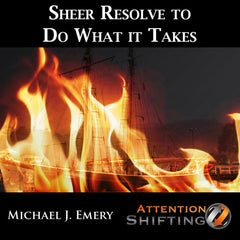Carl Jung's Theory of Archetypes Affects Your Personal Development Path
In my opinion, aside from the concept of introversion and extroversion, Jung's theory of archetypes is possibly one of the most relevant ideas regarding the unconscious mind?s ability to perceive structure within forms.
What Are Archetypes?
Archetypes are unconscious, recurring patterns often appearing in mythology and modern story telling in film and literature. The major structures of personality can also be identified as archetypes. In a way that is beyond words, we recognize and identify the form unconsciously and respond to it based upon its associated meaning.
What Are Common Character Archetypes or Archetypes in Literature or Movies?
Examples of archetypes might be a wise old sage, the virgin princess, a smooth salesman, the reluctant hero, a medical doctor, the mother, the devil, etc. It is useful to be aware of archetypes because people have been preconditioned to unconsciously respond to them in a wide variety of ways. When you pay closer attention you?ll discover that big business, big religion, and big government all use archetypes to benefit their aims.
Unfortunately, in a brief review of any historical age, one can find overwhelming evidence of those institutions utilizing archetypal symbols and metaphors to crush the spirit of human autonomy and freewill. Archetypes can be used in a variety of ways to communicate a subconscious message without saying a word. For this reason, discernment is key. When you pay close attention to advertising and entertainment, you'll notice that archetypes are heavily drawn upon. These forms are quickly, and often unconsciously, identified so that the pretext of a scene can be assumed. In short, the images alone say more than the dialogue could ever communicate. The question to ask yourself when you feel compelled to change your behavior or act (buy something) is to ask yourself two questions:
Who does this ultimately benefit? And, will my resulting actions be based in fear and scarcity or abundance and love?
What Are Your Personal Development Objectives?
Awareness of Jung's theory of archetypes can give great insight into your motivation and drives. You might find that you react to certain individuals based upon archetypal themes they trigger within you (Jung's theory of complexes). When you listen to my Attention Shifting personal development audio programs, you will find that much of the internal imagery you experience is based upon archetypal themes. Even the concept of your ideal self (the unlimited, non-marginalized, resourceful you) is archetypal in nature from the way you would appear to others (persona) to the various ways that this true manifestation of you interacts with the world.
If you want to experience archetypal themes in your personal development today, then invest in some of my Attention Shifting programs and pay attention to the forms that arise in your internal imagery and focus upon changing your persona so that it is as equally powerful as the archetypal forms you encounter.
 Here's an example of how this might play out: let's say that you want to focus upon the motivation to make something important happen and you decide to buy the Sheer Resolve audio program. The barriers to the specific thing you desire to achieve are archetypal in their form. When a person considers doing something important and the setbacks that might arise, in a split second, several scenarios might come to mind that could involve other people. However, those other people aren't necessarily identifiable, they are just forms that require some sort of interaction or play a specific role in your process. The only way you can effectively manage those forms is to create a persona (the resourceful, empowered you) that is powerful enough to compel them to act beneficially to your cause.
Here's an example of how this might play out: let's say that you want to focus upon the motivation to make something important happen and you decide to buy the Sheer Resolve audio program. The barriers to the specific thing you desire to achieve are archetypal in their form. When a person considers doing something important and the setbacks that might arise, in a split second, several scenarios might come to mind that could involve other people. However, those other people aren't necessarily identifiable, they are just forms that require some sort of interaction or play a specific role in your process. The only way you can effectively manage those forms is to create a persona (the resourceful, empowered you) that is powerful enough to compel them to act beneficially to your cause.
Actually, if you're reading this right now, you are part of my ideal customer archetype - the shared characteristics of all my customers. In my mind's eye, I perceive you as truth-seeking, motivated and desiring to champion a cause in the world. My responsibility to my ideal customer archetype is to serve, motivate, and inspire each one to be resourceful, powerful, and benevolent individuals who leave a beneficial legacy in this world. Constantly, in the back of my customer archetype's minds I want them to hear: Your actions will echo throughout time, so seize every moment beginning now...

